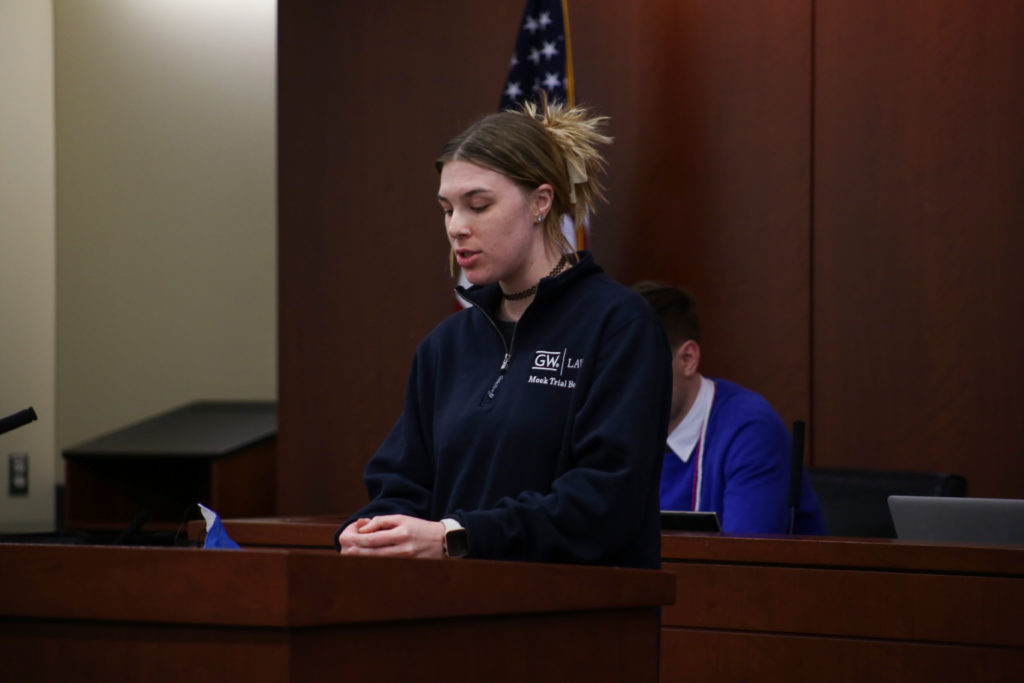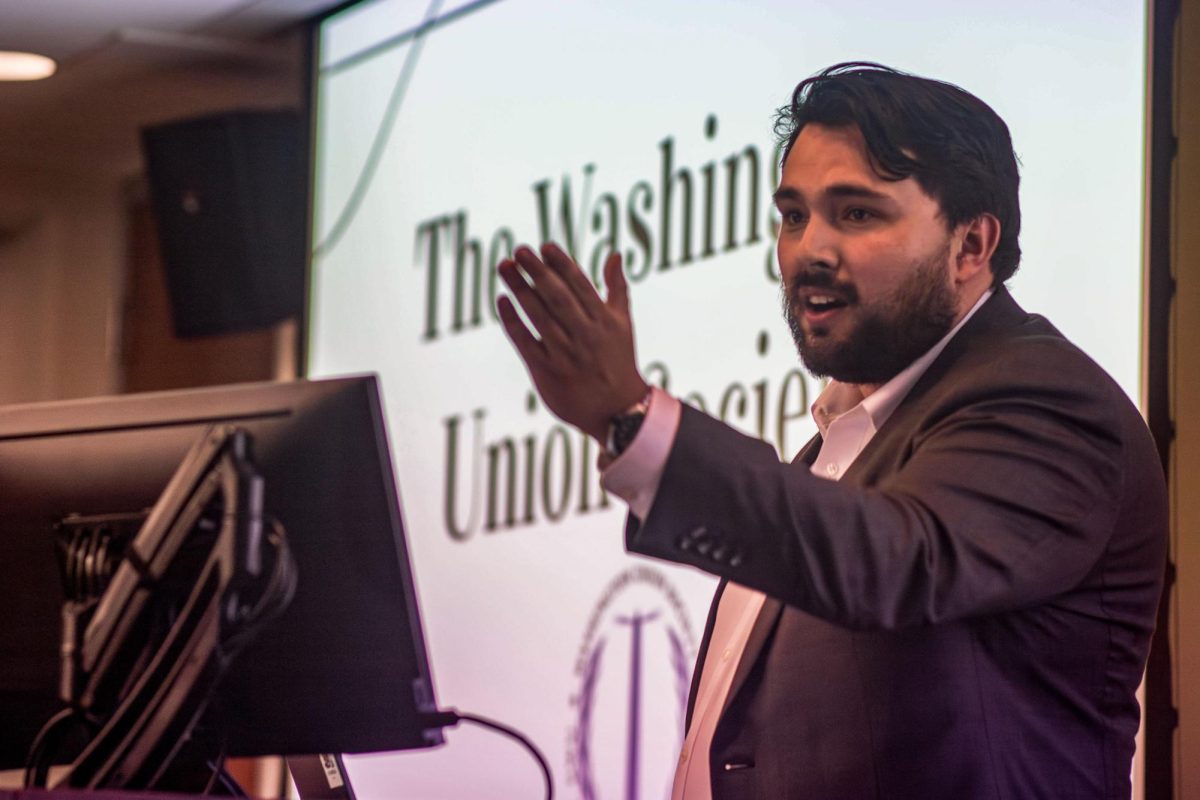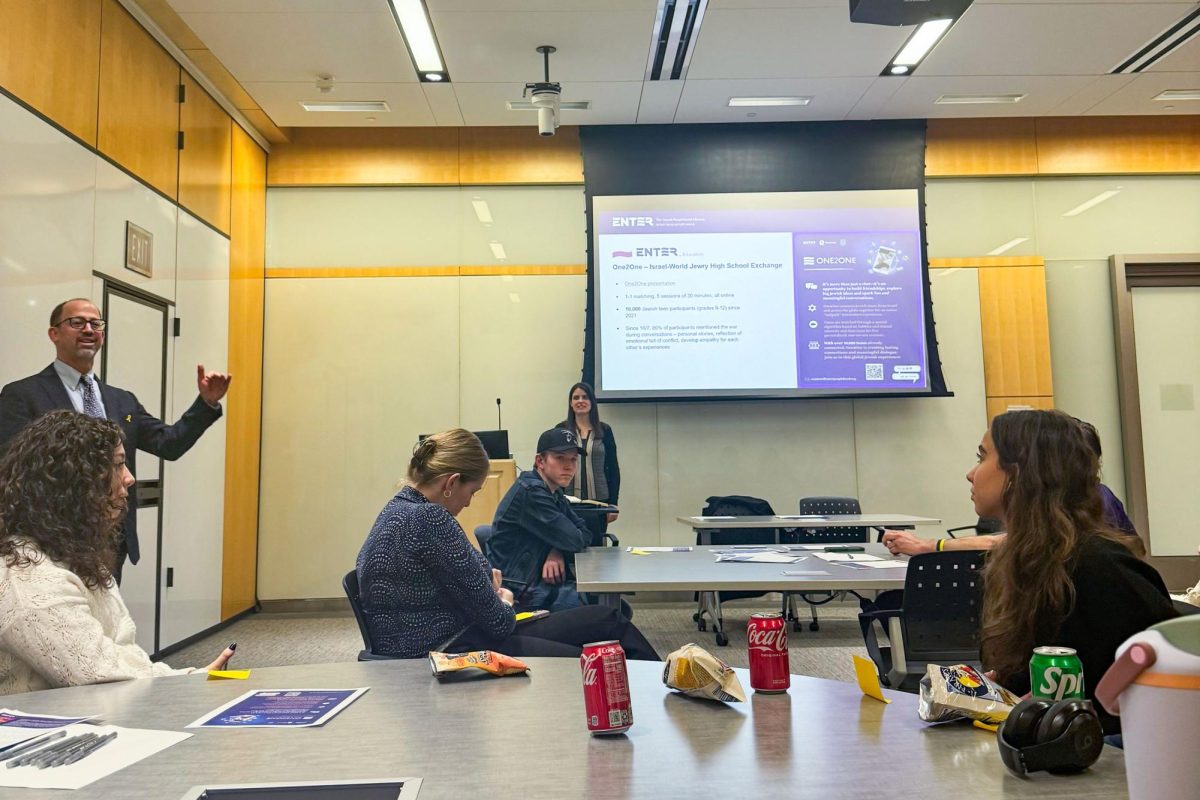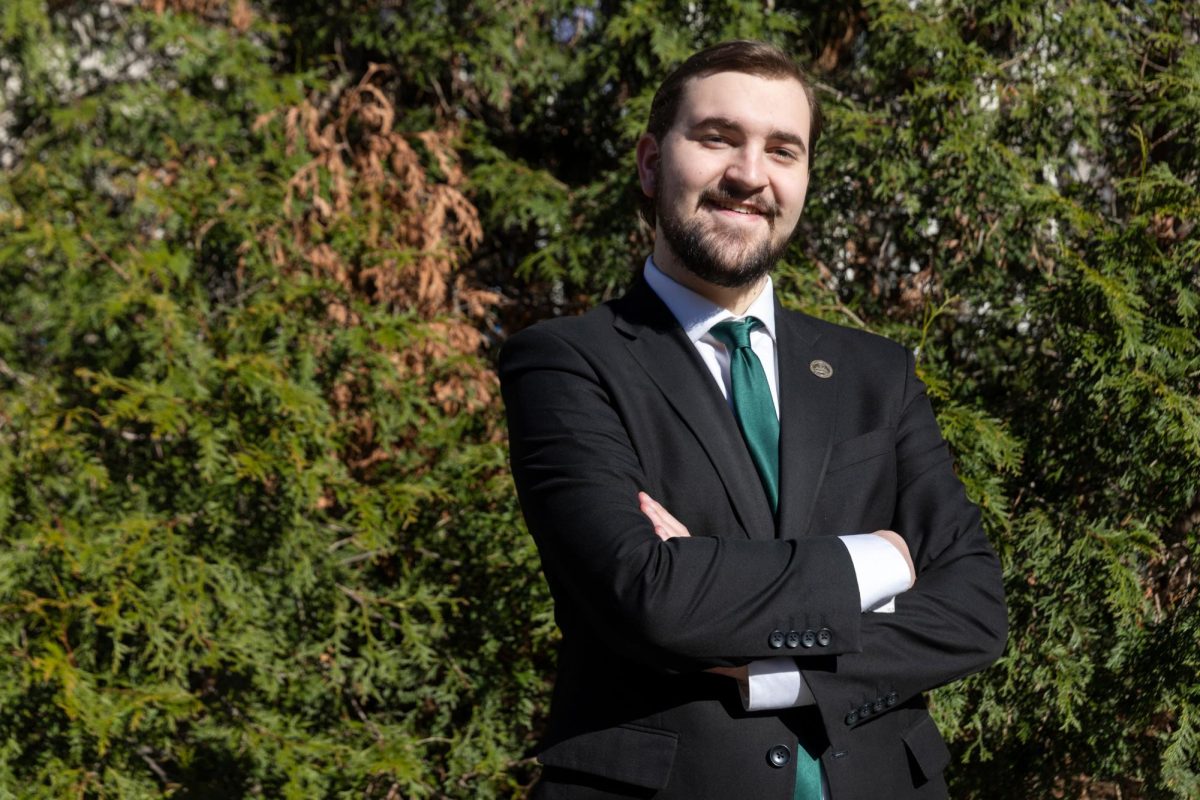The Student Bar Association unanimously approved the allocation of more than $2,000 toward the law school’s annual musical and sketch comedy performance.
Senators unanimously approved $2,131 to go toward the cost of renting Lisner Auditorium as a performance space and costumes for GW Law Revue’s annual performance. SBA Sen. John Tuley, the finance committee chair, said GW Law Revue applied for funding from the University-Wide Programs Fund but has yet to receive a response.
Krissy Cralle, the director of GW Law Revue, said the show is entering its 45th year at the University. She said the group held the performance in the University Student Center’s Grand Ballroom last year, and the revue sold out the venue.
“We are one of the few GW Law organizations whose primary event is nonacademic, strictly based around humor with a primary function of relieving stress,” she said. “Additionally, our law revue show and its resulting content served as promotional material for prospective students.”
Cralle said the annual spring show attracted more than 500 student attendees and cast more than 50 students in performances before the pandemic. She said the performance includes comedy sketches and musical numbers that spoof law professors, students and current events.
“Our show brings students, professors, alumni and administrators from across all different fields of interest together,” she said. “It is a chance to meet people outside of your legal area of interest and broaden your network.”
Cralle said the funds from the SBA would go toward renting Lisner Hall, a larger performance venue available on Feb. 24—the date of the performance—theatrical equipment and labor costs. She said some funding would promote awareness and increase ticket sales, allowing GW Law Revue to request less money in the future.
“While we understand the cost is high, we believe reinstilling the cultural significance of the Law Revue show should be a priority for this committee,” Cralle said.
Cralle said it was “very, very difficult” to find information on the University-Wide Programs Fund. She said she was unable to access the Google Drive folder with information about the fund. The folder requires students to request access to view the information, even while using their GW email accounts.
Events attracting more than 350 attendees are eligible to apply for the University-Wide Programs Fund.
Prior to creating the University-Wide Programs Fund, the University matched the $3 per-credit fee students paid to the Student Association’s fund. The creation of the fund removed 50 cents of what previously would have been matched funds from the SA’s budget, which in turn cut the SBA’s budget by $24,000.
GW Law Revue received the most funding of any law student organization in general allocations last fall for a total of $12,068.
Tuley said GW Law Revue requested a smaller amount from the SBA than they did from the University-Wide Programs Fund. He said senators should encourage student organizations to fundraise to make up for cuts to the SBA’s budget.
“We are tapped on the amount of money that we can give because we don’t have money to give,” he said. “So if organizations want to grow, unfortunately, at this point, a lot of that growth will have to come from within.”
Tuley said the finance committee’s internal rules require student organizations to fundraise 25 percent of their requests, but the rule has not been enforced.
“It can be enforced, and I think future finance committees will be encouraged to enforce that,” he said. “And organizations will not be happy.”
Senators failed to pass an amendment to the bill, 9-12, that would have allowed the SBA to disburse funding to GW Law Revue 72 hours prior to the payment deadline in the hopes that the University-Wide Programs Fund would respond.
Senators unanimously approved a bill reforming the bylaws to require that student organizations hold elections for the positions of president, vice president and treasurer in the spring semester of each academic year. SBA Sen. Anissa Tanksley, who sponsored the bill, said the bill would help the SBA oversee student organizations and maintain contact with their leaders.
“We need to provide oversight for these student organizations that exist on this campus,” she said. “This is an area where we have been a little lacking historically.”
Senators unanimously approved the creation of the International Arbitration Students Association, which supplies a forum for law students to discuss international arbitration. Senators also unanimously approved the creation of GW Law itrek, the University’s chapter of a nationwide organization that travels to Israel.
Senators unanimously voted to ratify three constitutional amendments. The amendments control the transfer of power between the incumbent executive branch and the incoming executive branch, stipulate that the SBA’s two non-JD senators will be elected during the fall semester general elections and serve until the conclusion of their Non-Juris Doctorate Programs and clarify previous constitutional amendments.
The next SBA senate meeting will be held Feb. 21 at 9:15 p.m. in the Law Learning Center.










